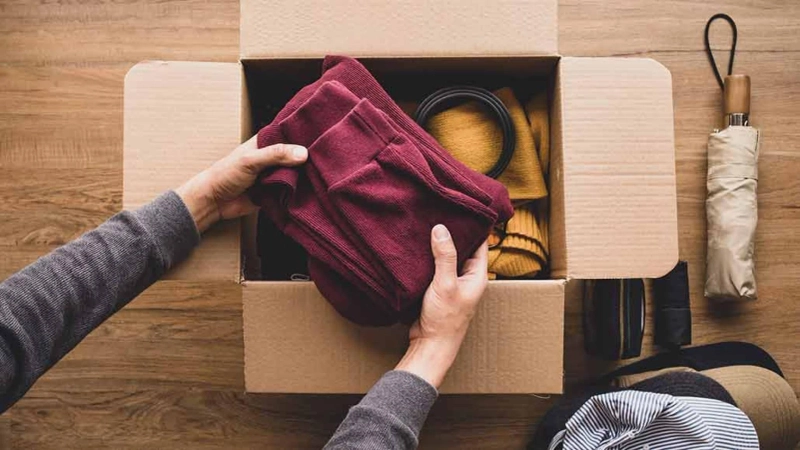In today's world, where environmental sustainability is becoming increasingly crucial, finding creative ways to reduce waste and reuse items has never been more important. From repurposing household items to upcycling old materials, there are countless ways individuals can contribute to a more sustainable future. So, if you're looking for some genius reusing hacks, you've come to the right place! Let's explore some innovative reusing tips and tricks that can help us all play a part in protecting our planet.
Instead of tossing out glass jars after using their contents, why not give them a second life? Glass jars can be easily cleaned and reused for storing various items such as spices, nuts, and seeds, or even as containers for homemade candles or beauty products. They're versatile, and durable, and help reduce the need for single-use plastic containers.Get Creative with Clothing
Instead of throwing away old clothing that no longer fits or is out of style, consider giving it a new lease on life. Transform old t-shirts into cleaning rags, turn jeans into shorts, or repurpose fabric scraps for crafting projects like quilting or patchwork. You can also host clothing swap events with friends or donate gently used items to thrift stores to extend their lifespan.Upcycle Furniture
Before discarding old furniture, think about ways to breathe new life into it through upcycling. Sand down wooden pieces and give them a fresh coat of paint, reupholster chairs and sofas with fabric remnants, or repurpose items for alternative uses. For example, an old wooden ladder can be turned into a stylish bookshelf, while wooden pallets can be transformed into outdoor seating.Embrace DIY Cleaning Products
Say goodbye to store-bought cleaning products packaged in plastic bottles and hello to homemade alternatives. Simple ingredients like vinegar, baking soda, and essential oils can be combined to create effective cleaning solutions for various household tasks. Not only are these DIY cleaners better for the environment, but they're also more budget-friendly and reduce the need for excess packaging.Reduce Food Waste
Food waste is a significant contributor to environmental degradation, but there are ways to combat it through reusing and repurposing. Get creative with leftovers by incorporating them into new meals or freezing them for later use. Compost food scraps to create nutrient-rich soil for gardening, or use vegetable scraps to make homemade broth or stock. By being mindful of food waste, we can minimize our ecological footprint.Invest in Reusable Products
Ditch single-use items in favor of reusable alternatives to cut down on waste. Carry a reusable water bottle and coffee cup, use cloth shopping bags instead of plastic ones, and opt for beeswax wraps or silicone food storage bags instead of disposable plastic wrap or sandwich bags. These small changes can add up to significant reductions in waste over time.Repurpose Paper
Paper products often end up in the trash after just one use, but they can be reused in various ways. Old newspapers can be used for wrapping gifts or cleaning windows, while scrap paper can be turned into homemade notebooks or used for jotting down grocery lists. By finding new uses for paper items, we can extend their lifespan and minimize waste.Choose Reusable Packaging
When shopping for groceries or household items, look for products with minimal packaging or packaging that is recyclable or compostable. Consider buying in bulk to reduce packaging waste, and choose products with reusable containers or refillable options whenever possible. By being mindful of packaging choices, we can reduce our environmental impact while supporting more sustainable practices.Repair Instead of Replace
In a throwaway culture, it's easy to discard broken items and replace them with new ones. However, repairing items not only saves money but also reduces waste. Whether it's mending torn clothing, fixing a leaky faucet, or patching up a hole in a screen door, taking the time to repair items can extend their lifespan and reduce the demand for new resources.Share and Borrow
Lastly, consider sharing or borrowing items instead of buying new ones. From tools and appliances to books and toys, there are countless items that we use only occasionally and could easily be shared within our communities. Whether through formal lending libraries, neighborhood exchanges, or simply borrowing from friends and family, sharing resources helps reduce consumption and promote a more sustainable way of living.
Conclusion:
In conclusion, reusing items is not only beneficial for the environment but also allows us to tap into our creativity and resourcefulness. By implementing these genius-reusing hacks into our daily lives, we can all play a part in building a more sustainable future for generations to come. So let's swap tips, get inspired, and work together towards a greener, cleaner planet!


